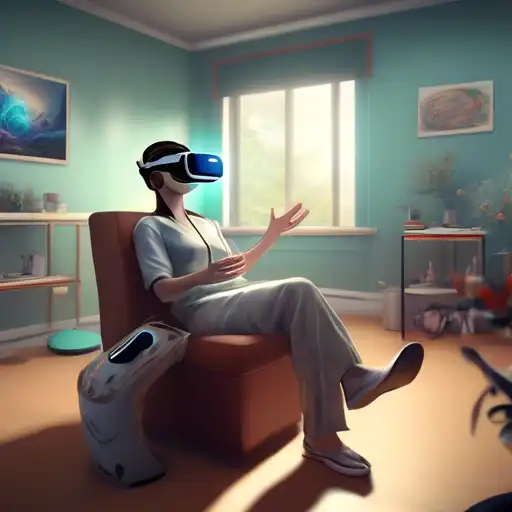The Transformative Power of Virtual Reality in Therapeutic Practices
Virtual Reality (VR) technology has transcended its initial entertainment purposes, paving the way for groundbreaking applications in therapy. This immersive technology is now being leveraged to treat a variety of psychological and physical conditions, offering patients a safe and controlled environment for healing and recovery.
Understanding VR Therapy
VR therapy involves the use of virtual reality simulations to create immersive experiences that can help individuals confront and overcome their fears, anxieties, and other mental health issues. By simulating real-world environments, VR allows patients to face their challenges in a controlled setting, making it a powerful tool for therapists.
Applications of VR in Therapy
The applications of VR in therapy are vast and varied. Here are some of the most notable uses:
- Exposure Therapy: VR is particularly effective in treating phobias and PTSD by gradually exposing patients to their fears in a safe environment.
- Pain Management: VR has been used to distract patients during painful procedures, reducing their perception of pain.
- Rehabilitation: Stroke and injury patients can benefit from VR-based exercises that improve motor skills and cognitive functions.
- Social Skills Training: Individuals with autism or social anxiety can practice social interactions in virtual scenarios.
The Benefits of VR Therapy
VR therapy offers several advantages over traditional therapeutic methods. It provides a high level of control over the therapeutic environment, allows for the customization of scenarios to meet individual patient needs, and can be a more cost-effective solution in the long run. Moreover, the immersive nature of VR can lead to more engaging and effective therapy sessions.
Challenges and Considerations
Despite its potential, VR therapy is not without its challenges. The cost of VR equipment and the need for technical expertise can be barriers to widespread adoption. Additionally, there is a need for more research to fully understand the long-term effects of VR therapy and to establish standardized protocols for its use.
The Future of VR in Therapy
As VR technology continues to evolve, its applications in therapy are expected to expand. With advancements in AI and machine learning, future VR therapy programs could offer even more personalized and adaptive treatment options. The integration of VR into teletherapy could also make mental health services more accessible to those in remote or underserved areas.
In conclusion, VR is revolutionizing the field of therapy by offering innovative solutions to traditional treatment challenges. Its ability to create immersive, controlled environments makes it a valuable tool for therapists and patients alike. As research and technology continue to advance, the potential for VR in therapy is limitless.
